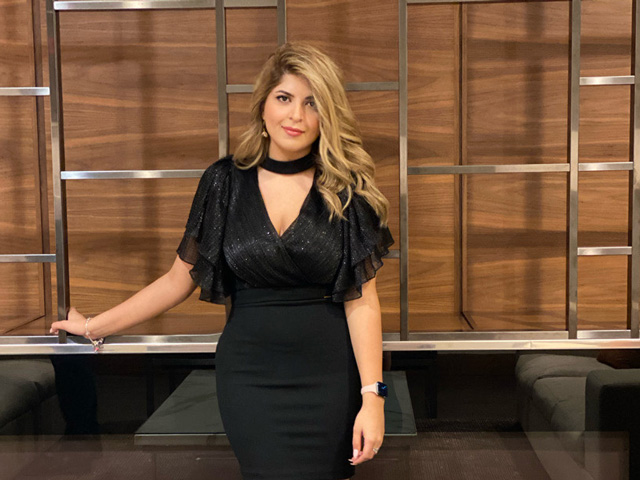Double Gold: Niloufar Rostam Shirazi achieves Ryerson’s top honour for the second time

Two-time Gold Medal recipient, Niloufar Rostam Shirazi
Just two years ago in 2019, physics student Niloufar Rostam Shirazi walked across the convocation podium and picked up her first Ryerson University Gold Medal. She was the first physics undergraduate to ever win the award.
Two years later, Rostam Shirazi has done it again. She completed her master’s degree with the schools’ highest award, and is now hard at work on her PhD. The two-time honouree shared some perspectives in a recent interview.
What does receiving the Gold Medal Award mean to you?
Receiving the Gold Medal for the second time reminds me that hard work pays off. Achieving the Gold Medal is a challenge in itself, but it requires even more hard work when there are additional barriers to overcome, which I personally faced as an immigrant woman in science. One of the toughest challenges was overcoming the language barrier to communicate complex scientific ideas effectively.
Reaching this milestone affirms that I’m continuing to move in the right direction, and I hope to use my achievements to contribute to the field of science. It has also played a role in helping me expand my network with more scholars, and boosted my chances when applying for other prestigious graduate scholarships.
What advice would you give students entering their first year?
Take the first couple years of your university education seriously. Studying at university is drastically different from high school. Develop the skill of studying with a view to understanding, rather than just focusing on how much time you spend studying. Ryerson provides many resources to improve your academic knowledge and skills. Take advantage of all of them. Don’t be afraid to approach your fellow peers, graduate students and professors to get all the help that you need to be the better you.
Do you have any favourite classes or professors, and what made them stand out?
I had the pleasure of taking the Science Communication course with Dr. Michael Kolios. This course is helping me to grow as a scientist and develop critical thinking. The course really improved my presentation and writing skills, and helped me communicate complex ideas to various audiences.
How did Ryerson support you during your time here?
The university provides great resources to help you grow, such as different workshops. I really benefited from ones that helped me apply for various scholarships. They were taught by experts who had previously won the scholarships and shared useful information about writing a strong application. The university also helped me expand my network and collaborate with amazing colleagues. They assisted me throughout my research and were not hesitant to guide me when I reached out to them.
What has been your proudest accomplishment?
Aside from two gold medals, I am grateful for the connections I made and the friends that I have met during my time at Ryerson. I’m also proud to receive NSERC CGS-M as well as OGS scholarships during my graduate studies. These achievements encourage me to continue advancing my knowledge by pursuing a PhD degree, which ultimately helps me towards my goal to contribute to society. Also, as a graduate student and teaching assistant, my greatest satisfaction comes from the opportunity to inspire and support other students who are now in the position that I once was years ago.
What are your future plans?
My next step is to complete my PhD degree in CAMPEP-accredited biomedical physics. I’ll be working on the clinical translation of work that I started during my master’s research. It focuses on using ultrasound and nanobubbles to image kidneys, which challenges the invasive, current gold standard of kidney fibrosis diagnosis. Once I finish my PhD, I want to train as a medical physicist in a hospital so that I can help cancer patients through treatment planning and administration of radiation.